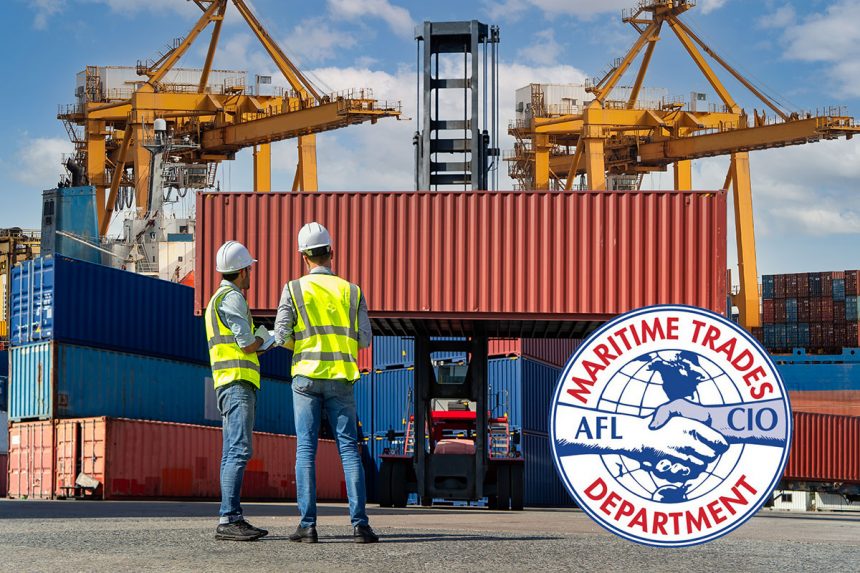If it is springtime in Washington, DC, it must be time for an annual tradition.
No, we are not referring to the cherry blossoms. It must be that season to attack the need for the Jones Act.
While there have been some attempts to challenge the Jones Act, there seems to be a change in the air in 2016. Instead of headlines and editorials about why America’s freight cabotage law is no longer needed, officials and policy makers are declaring their support to make sure the United States maintains a strong, viable U.S.-flag fleet with trained civilian mariners available to do the job.
The latest offering of support is a March 24 report issued by the Lexington Institute, a Virginia-based think tank that focuses on national security, logistics and other matters. While noting the Jones Act was designed “to support a robust U.S. shipbuilding industry and merchant marine,” the 1920 law also includes other valuable services.
“It is particularly important that those vessels and crews which routinely travel between U.S. ports and especially the inland waterways through America’s heartland pose no threat to the homeland,” noted the document entitled Venerable Jones Act Provides Important Barrier to Terrorist Infiltration of the Homeland. “It is for this reason that the higher standards with respect to ownership and manning requirements for Jones Act ships are so significant.”
(The Jones Act, part of the 1920 Merchant Marine Act, states cargo moving between domestic ports must be carried aboard U.S.-crewed, U.S.-built, U.S.-owned and U.S-flagged vessels.)
The Lexington Institute added that without the Jones Act being in place the Department of Homeland Security would face “the difficult and very costly requirement of monitoring, regulating and overseeing foreign-controlled, foreign-crewed vessels in coastal and internal U.S. waters.”
A week earlier, the commandant of the U.S. Coast Guard told the House Subcommittee on Coast Guard and Maritime Transportation how important he thinks the Jones Act is to national security.
“You take Jones Act away, the first thing to go is these shipyards and then the mariners,” Admiral Paul Zukunft informed the members of Congress. “If you take the mariners away, what is the world going to look like 10 years from now? I am concerned that any repeal of the Jones Act would cut at the heart of that industrial base.”
He added, “When we look at the challenges that the Maritime Administration and TRANSCOM (U.S. Transportation Command) are facing in the event of a contingency and we don’t have a lift within the U.S. fleet to respond to a contingency at a point in time that we are seeing the reemergence of pure competitors – it is in our nation’s best interest to protect our maritime resiliency and the Jones Act does provide that wherewithal.”
During the same hearing, Maritime Administrator Paul “Chip” Jaenichen informed the legislators, “If the build requirement were changed, there are about 40 different yards around the country that are building both federal and commercial vessels. Without the Jones Act, those builds don’t occur.”
Previously in March, the Transportation Institute – a Washington-based policy group whose mission is to preserve the U.S.-owned, built and crewed Jones Act fleet and to enhance national security through the expansion of a militarily useful U.S.-flag vessel fleet – called attention to a PricewaterhouseCoopers study on the effects of the Jones Act on the Texas economy.
That report said the Lone Star State ranks third in the nation for domestic maritime jobs, while Houston is second among all U.S. cities for its contribution to the U.S. maritime industry. It goes on to say that the domestic maritime industry brings $8 billion annually into the state’s economy while providing just over 39,000 jobs.
U.S. Rep. Brian Babin (R-TX), a former merchant mariner whose district borders Houston, Galveston and Port Arthur, noted the study shows domestic maritime “to not only be a major source of good-paying jobs for Texas but also a leading contributor to our state and national economy.”
A separate report regarding domestic commercial and military shipbuilding released at the same time conducted by the Maritime Administration showed more than $2.3 billion in annual shipyard impact in Texas, providing more than $1.4 billion in worker income to the state’s shipyard industry. That same study announced shipyard jobs pay approximately 45 percent above the national average for private sector employment.
The year 2016 started with a solid show of support from the head of the U.S. military’s worldwide logistics command.
General Darren W. McDew, TRANSCOM Commander, wrote a February op-ed column for The Virginian-Pilot newspaper pointing out how valuable the U.S. merchant marine has been throughout the nation’s history, and particularly during the recent conflicts in the Middle East:
“As a country, we have collectively worked to maintain a strong maritime industry that supports our needs. From enacting the Cargo Preference Acts of 1904 and 1954 to the Jones Act of 1920, and from a 1989 National Security Directive to the Maritime Security Act of 1996, we have sought to delay the day when U.S. national security interests could no longer be supported by a U.S. mariner base springing from our commercial sealift industry.”
The general concluded by stating, “The only way of guaranteeing we decisively meet our national objectives is with U.S. ships operated by U.S. mariners.”

